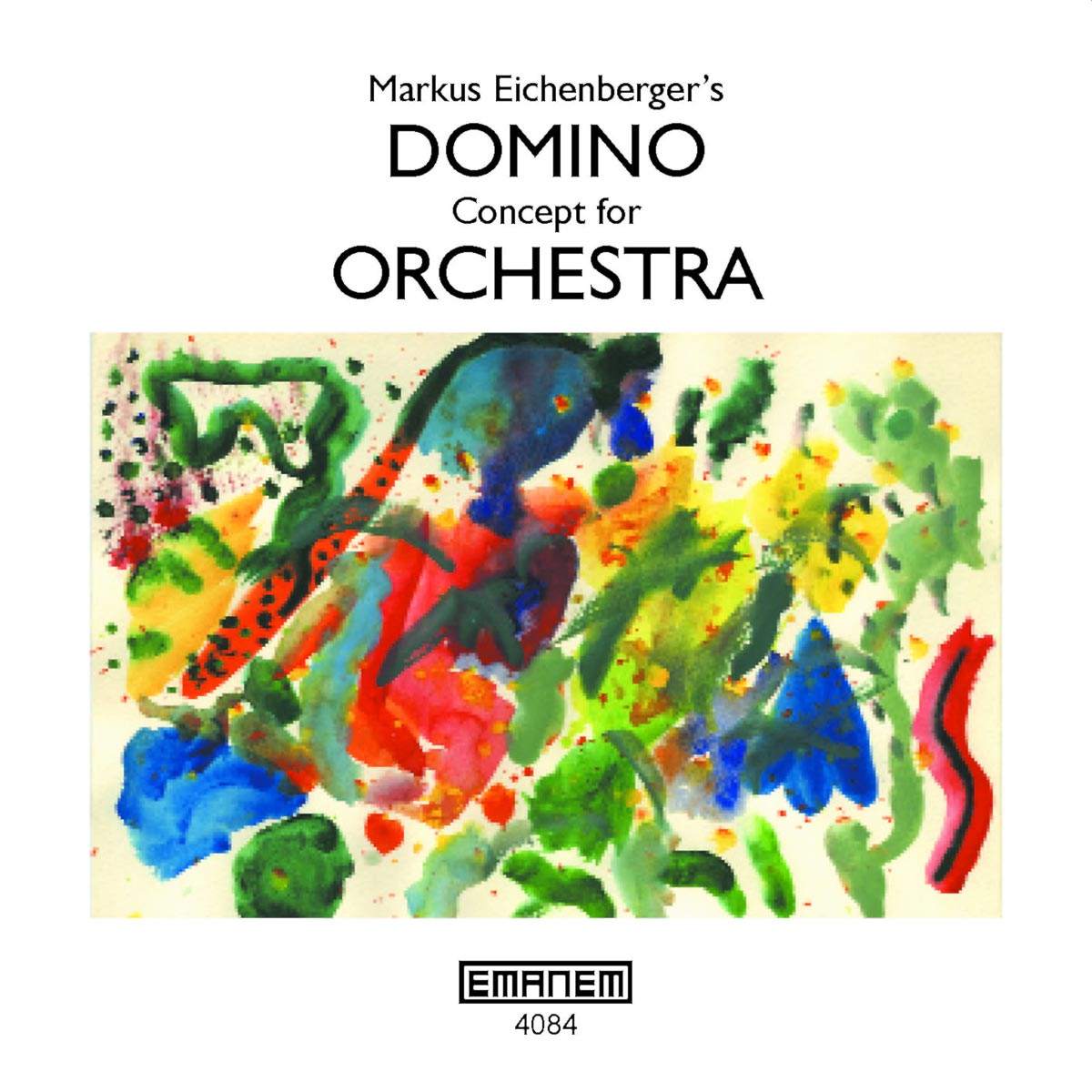
Besetzung
Carlos Baumann (CH), Trompete
Helmut Bieler-Wendt (D), Violine
Markus Eichenberger (CH), Klarinetten
Peter K Frey (CH), Kontrabass
Charlotte Hug (CH), Viola
Paul Hubweber (D), Posaune
Carl Ludwig Hübsch (D), Tuba
Dirk Marwedel (D), erweiterte Saxophone
Frank Rühl (D), Elektrogitarre
Marianne Schuppe (CH), Stimme
Dorothea Schürch (CH), Stimme
Daniel Studer (CH), Kontrabass
Ivano Torre (CH), Perkussion
Reviews
The Concept for Orchestra, Markus Eichenberger has created, is based on simplicity. His signals changes in moods by changing between his five clarinets, markers offering a number of new possibilities each time. This results in a much friendlier and free-flowing music than John Zorn 1st game-pieces (which tend to be so complex and eventful rules-wise that musician focus on keeping up instead of their and others playing) or the egocentric, ensemble-denying conductions of Lawrence Butch Morris. Therefore the succes of the music rests on the talent of the improvisers talent to play and to listen. For this studio album, the Domino Orchestra consists of 13 musicians from the Swiss-German axis. Eichenbergers clarinets and Dirk Marwedels extended saxophones form the reeds section, a three-piece brass section, five string players including two bassists and electric guitarist Frank Rühl, percussionist Ivano Torre and two singers(Marianne Schuppe and Dorothea Schürch) round up the formation. The absence of electronics sounds refreshing by 2002 it had become a rare non-feature in large groups. The music is strongly colored by play fulness and a sense of cameraderie. It could mean a fake serious-not-serious attitude, but it is not the case. The cheerful attributes of the music are the natural extension of Eichenbergers personality. He works his leadership in a understaded manner, his clarinets remaining at the heart of the music without ever stealing the show. Concept for Orchestra may not hold a revolution, but it presents high qualitiy structered improvisation.
Francois Couture (All-Music)
Though the Emanem label is normally associated with the English improvised music scene that Martin Davidson has so tirelessly championed for nearly three decades, his label has in recent years produced three of the most impressive albums featuring improvising large ensembles − Masashi Harada’s Condanction Ensemble (Emanem 4041) the LIO (documented on several Emanem releases, none of which needs introduction here) and now Markus Eichenberger’s Zürich−based Domino Concept. Growing out of clarinettist Eichenberger’s Workshop for Improvised Music, a thirteen−strong Swiss−German ensemble came together to develop Eichenberger’s concept (unfortunately not explained in as much in line−up both to Georg Gräwe’s GrussenklangOrchester and Wolfgang Fuchs‘ King übü örchestrü (in a blind test identified Eichenberger’s album as the latter, confusing trombonist Paul Hubweber for Radu Malfatti − apologies to both men, and remind me never to allow myself to be blindtested on my own record collection again), but with added strings, Domino Concept is glorious proof that big band improv doesn’t have to descend into sweaty mud wrestling to make its point. Eichenberger’s chipped, bristling clarinets are particularly impressive throughout, and the static drones of violin and viola (respectively Helmut Bieler − Wendt and Charlotte Hug) in Part II form a delicate backdrop to Ivano Torre’s percussion and the breathy, sensual vocalism of Marianne Schuppe and Dorothea Schürch. Change, when it comes, is handled masterfully; one could almost suspect the presence of a score somewhere, or least some pretty well−worked out conduction (particularly half way through Part III). A rewarding album, but one that needs some good concentrated listening to yield up ist treasures.
Dan Warburton ( Paris Transatlantic Magazine)
A thirteen−person collective, Domino are the perfect incarnation of that kind of new free music that you could associate with contemporary chamber music without a problem. A perfect balance among all the instruments involved is the main basis for music that has no definition whatsoever, but at the same moment it’s so delinated and self regulating that everything seems composed instead of improvised. There are lots of parts in which the music sounds restrained and willing to get out of a hole; the beauty of Eichenberger’s orchestra is right there, when sounds are willing to manifest themselves but thmusicians force them to follow a path made of silent promises and menacing extremely brillant and intelligently creative from the beginning to the end.
Massimo Ricci (Touching Extremes)
Der Klarinettist MARKUS EICHENBERGER, Jahrgang 1957 und Mitte der 80er einer der markanten Schweizer− Macher, die im Spotlight von bad alchemy 6 & 7 standen, ist heute ein gesetzter Rundkopf und Franz Koglmann−Look−alike. Schon damals hatte er sich längst einen Namen gemacht in Duos mit Andres Bosshard und Peter Frey, einen Saxophonquartett oder einem augenfälligen Solo−Kunstwerk „Atemketten Nr.20/8 – Atemkreis“(1986), dem 1993 „Tuttrieb−Triebtat“ folgte (beide auf Unit-Records). Für sein erstmals 1995 im Zürcher WIM vorgestelltes und seitdem stufenweise ausgefeiltes und erweitertes Projekt Domino standen ihm für diese Einspielung im Studio 2 des DRS Zürich Anfang April 2001 dreizehn Dominosteine zur Verfügung, die er nach Impuls− und Kontrolle−Spielregeln für ein Gamepiece, ähnlich Zorn’s Cobra, in Wallung versetzte. Den meditativen Charakter des bereits von den alten Chinesen und den Arabern praktizierten Zeitvertreibs entsprechend, reagieten die Sängerinnen Marianne Schuppe und Dorothea Schürch, Carlos Baumann (trumpet), Paul Hubweber (trombone), Carl Ludwig Hübsch (tuba), Dirk Marwedel (saxophones),Helmut Bieler−Wendt(violin), Charlotte Hug (viola), Peter K Frey und Daniel Studer (double bass), Frank (e−guitar) und Ivano Torre (percussion) mit achtsamen, vorsichtigen Spontanklängen auf Eichenbergers mit diversen Klarinetten angeregte Tempo− und Richtungswechsel. Vor den Ohren eines Nicht−Domino−Kenners entfaltet sich in gesteuerter Anarchie, in gewollter Zufälligkeit ein komplex austariertes Mobile. Ich denke aber, dass das Domino Orchestra kaum glücklich darüber wäre, wenn man vor lauter Konzept das Zuhören und Staunen vergösse.
Rigobert Dittmann (bad alchemy, Würzburg)